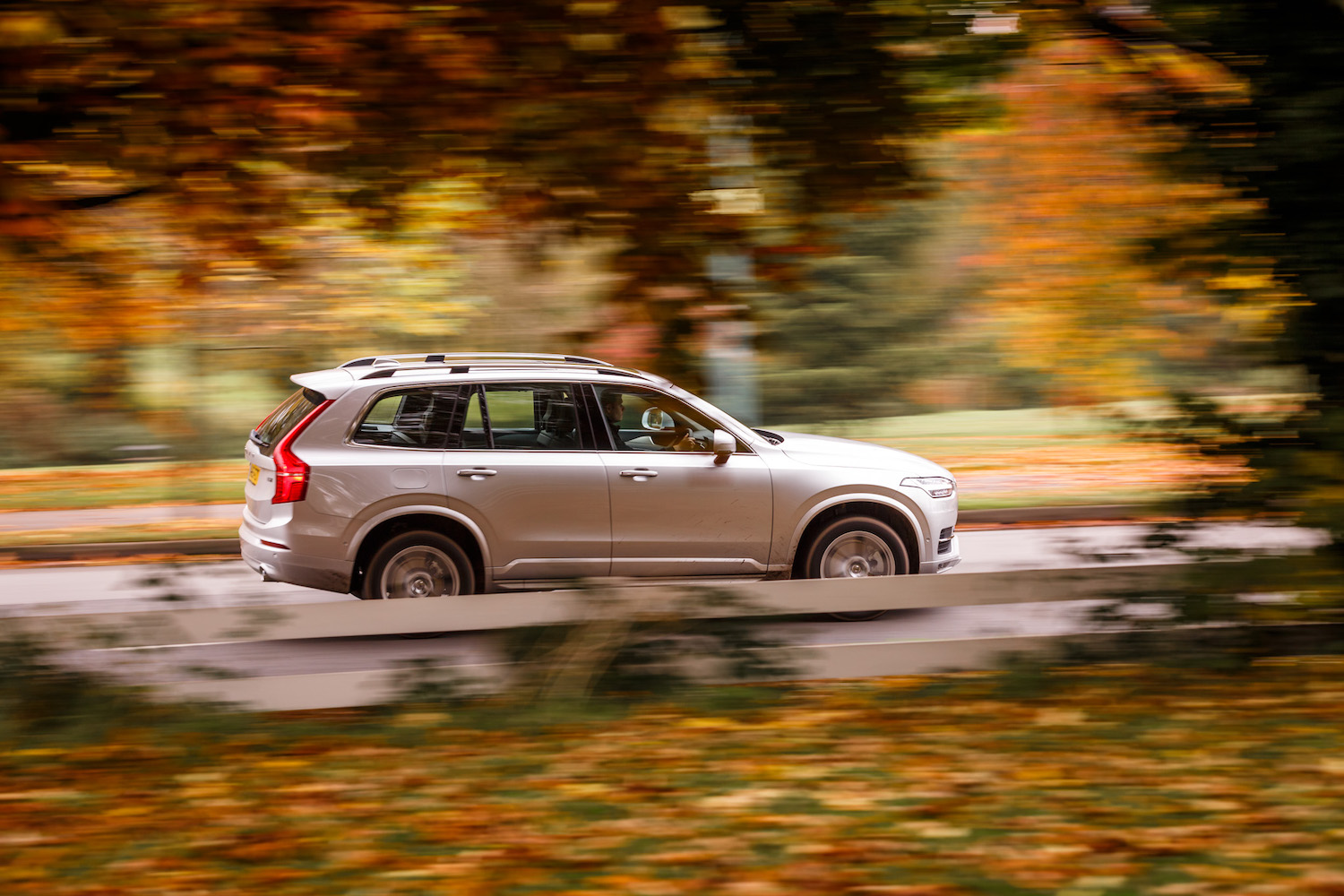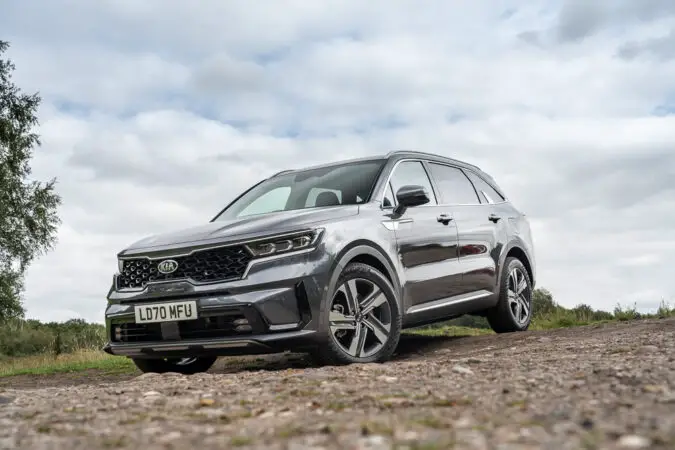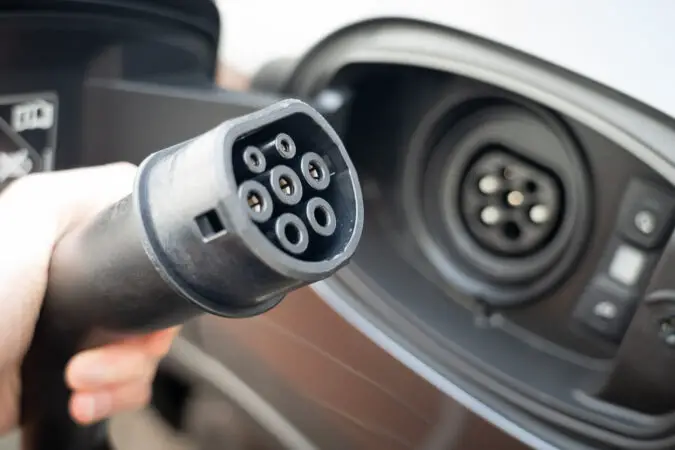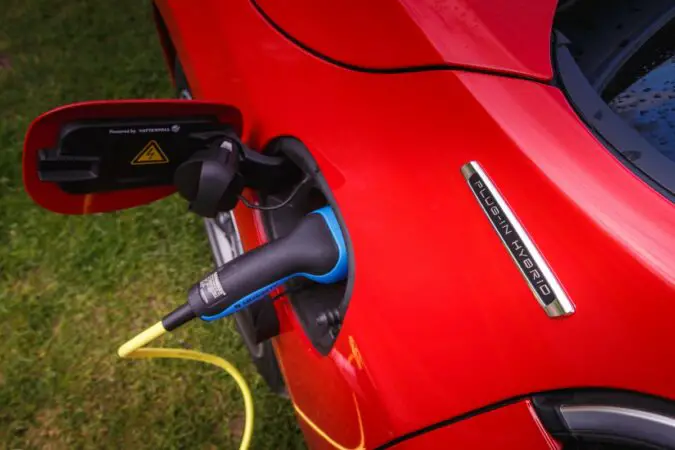You don’t need me to tell you that SUVs and crossovers have gained in popularity by bucket loads over the past couple of years. In 2021 alone, utilitarian-minded vehicles like SUVs and crossovers (not to mention pickup trucks) accounted for three-quarters of all new cars sold. Though they aren’t my cup of tea, I can certainly see why folks gravitate towards offerings such as a hybrid SUV.
After all, they sound like the perfect match to complement each other, no? SUVs are well-recognized for their do-it-all practicality and usability, being able to double as both the family runabout, as well as just a car that you can enjoy for yourself. On the flip side, however, SUVs are large and heavy. Thus, requiring more fuel to keep them going, which could, over time, leave a big dent in your wallet.
That’s unless you’ve opted to get a hybrid SUV, instead. A hybrid powertrain is more than sufficient to eke out a few more MPGs, while also helping to cut down on your carbon footprint. Sounds like a win-win in my books. But with so many options out there in an already-burgeoning market, which hybrid SUV is the best one for you and your needs? Well, it seems like choosing is a lot harder than it seems.
Should You Get A Hybrid SUV (Or Car)?
The first question that might come to mind would likely be, “is getting a hybrid SUV a good idea?” In practice, it’s not a given that you should always opt for a hybrid vehicle. Sometimes, there are a few pretty solid reasons to avoid one, but significantly stronger merits beyond which suggests that adding one to your garage is a fantastic idea. It’s a matter of whether or not that lifestyle suits yours.
If we look at this objectively and account for the pros and cons, buying a hybrid SUV or any vehicle featuring a hybridized powertrain has fewer compromises than you might think. It’s not the same as the early Prius days, where hybrid cars were slow, ugly, boring, uninspiring, and not even worth those few MPGs that it gained you. Mind you, things have changed quite a lot over the last few years.
These days, even Formula 1 and supercars have hybrid systems, not to mention a growing majority of regular day-to-day commuters out there with some sort of hybrid system. Be it a plug-in hybrid that could manage at least several miles of all-electric driving. Or, even a mild hybrid setup, and while they lack all-electric driving, it still marks a step-up and overall improvement over regular ICE vehicles.
Moreover, we also believe there are plenty of great justifications for you to avoid getting an EV, and hop into a hybrid vehicle, instead. Compared to full battery-electric vehicles, you won’t have to worry to death about range anxiety. With a hybrid powertrain, you always have that internal combustion power to back you up and keep the car running even as the battery empties up. So, that’s nice.
Pros Of Getting A Hybrid SUV Or Vehicle
With an SUV, you’re already getting a vehicle that could pretty much do anything you need in life. If that’s the case, why not elevate it even further by complementing the engine with a hybrid system…
- Eco-Friendly – To be fair, this is somewhat ambiguous, as some hybrids aren’t as environmentally kosher as the automakers want you to think. It mostly depends on the vehicle in question; plug-in hybrids do show significant cuts in tailpipe emissions, by allowing you to drive on all-electric modes (with limited range). Meanwhile, a mild-hybrid SUV or car is rather negligible in its emissions reduction.
- Fuel Consumption – The best upside to hybrid SUVs and cars is what they could do with cutting down your fuel bills. With plug-in hybrids, you could drive on all-electric modes for those shorter commutes, without even touching the internal combustion engine. Even a mild hybrid can supplement and aid your engine’s workload, effectively reducing it and improving fuel efficiency across the board.
- Performance – Given that a hybrid system essentially complements your internal combustion engine, it naturally can add a bit of poke to your car, too. When combined in a hybrid setup, you’re most likely seeing the engine handle low loads like cruising and highway driving. Meanwhile, the electric motor(s) will kick in during hard acceleration, or whenever you need that burst of torque.
- Range – Unlike going down the route of fully electric cars, you don’t have to worry about range anxiety with a hybrid SUV or car. Therefore, you needn’t have to extensively plan out your routes, think about where to stop to charge the batteries, or be concerned that you’ll be left stranded when the batteries eventually die. With a hybrid, once the batteries do go flat, you have an engine as a backup.
Cons Of Getting A Hybrid SUV Or Vehicle
Unfortunately, hybrid SUVs and cars do have their downsides (nothing is perfect in life), which might prove to be significant deal-breakers for you. Or, it might not, depending on your lifestyle and needs…
- Expensive – The level of research and development, design, engineering, manufacturing, and testing that goes on in developing hybrid powertrains isn’t cheap. Therefore, some of those costs will have to be borne by you, as hybrids do carry premiums over their ICE counterparts. However, this gap has been on the decline, as economies of scale and commonality have made hybrids cheaper than before.
- Maintenance – As they say, introducing more complexity and moving parts to something will certainly allow more things that could possibly wrong. The same idea applies to hybrid vehicles. Extra parts will have to be serviced (or repaired, when they go wrong), thus adding to your regular upkeep costs. In addition, you’ll have to worry about replacing that degrading and old battery pack down the line.
- Insurance – Interestingly, we’ve found that hybrid vehicles are costlier to insure than their ICE siblings. Depending on your vehicle, it roughly amounts to several tens of dollars per month in premiums. The pricier insurance rates are attributed to the higher cost of buying a hybrid SUV or car. Not to mention, the more expensive upkeep, maintenance, repairs, and added complexity of hybrid vehicles.
- Interior Space – This applies mostly to plug-in hybrid vehicles, which have large battery packs (though not as big as those featured in EVs) compared to mild-hybrid ones. Having to share some space with an already-large engine, that battery (and the rest of the hybrid system) will intrude on your interior space a bit. Depending on the vehicle, you may notice a smaller luggage and passenger space.
What Are The Best Hybrid SUVs Out There?
Without further ado, and taking into account the pros and cons of purchasing a hybrid, here are some of the best hybrid SUV models on the market today. While it’s not an exhaustive list, it might help you to narrow down the to-buy list a bit further. In no particular order (spoilers: they’re all pretty good, as it’s a matter of personal needs and tastes), we have…
1. Hyundai Tucson Hybrid
Hyundai (and its sister brand, Kia) have been killing it lately, making some of the best cars you can go out and buy today. Unsurprisingly, they’ve been stepping up their game in the hybrid market, too. Its most recent entrant is the Tucson hybrid, as Hyundai’s small crossover to the larger Santa Fe SUV. In doing so, however, the Tucson is still a highly capable hybridized vehicle, given the value proposition.
It may be relatively tiny, but the Tucson still offers you a cavernous passenger and luggage space. Thus, it’s the perfect runabout daily driver for smaller families. By default, it comes with an all-wheel-drive system, as well as a combined fuel economy figure of 37MPG. Respectable enough, before you start to take into account the ample performance enhancements over the base, ICE-only, AWD Tucson.
2. Hyundai Santa Fe Hybrid
Since we’re already talking about Hyundai, why not step it up a notch with the Santa Fe? Should the Tucson be a bit too small for you, the bigger Santa Fe is exactly what you need. As with its tinier self, the Santa Fe carries Hyundai’s latest design language. Personally, I think it’s a very handsome car to be seen in. Regardless, it’s not all for show either, as the Santa Fe is jampacked with features.
The powertrain is remarkably smooth, effortlessly and seamlessly switching back and forth between the engine and hybrid motors. Being a bigger and heavier vehicle, you’re slightly sacrificing on fuel economy, with around 32MPG or so to spare. But at least the Santa Fe makes it up with a large gas tank, ensuring that you could go the distance on a single tank. The interior is pretty nice, too.
3. Toyota RAV4 Hybrid
With a hybrid system in tow, it makes the oh-so-popular RAV4 even more appealing. Now, it punches out even more performance, and a much-needed torque filling in the low end of the powerband. You also get a standard all-wheel-drive system, so you could confidently drive this all-year-round, in snow or heavy rains. Plus, you’re cruising at around 40MPG or thereabouts, which is more than decent.
Elsewhere, it’s still a Toyota. Hence, you can count on that robust build quality, over-engineering, and bulletproof reliability. It’s no wonder why the RAV4 range as a whole is one of the best-selling SUV models in the US today. As a package, it’s the perfect blend of practicality, comfort, and usability. Now featuring a hybrid powertrain, it’s modestly quick and is extremely fuel efficient for the money.
4. Toyota Highlander Hybrid (3-Row SUV)
But what if the RAV4 is too much of a crossover for you? Should you desire a larger cargo capacity, or perhaps the meatier grunt and capabilities of a full-on SUV, Toyota has the Highlander. Equally, a very popular model, Toyota’s contemporary SUV is now a hybrid. Compared to most of its rivals, Toyota’s unorthodox hybrid powertrain has not one, but two electric motors, with significant gains all-around.
As far as fuel economy is concerned, you’re looking at the neighborhood of 36MPG. That marks an incredible gain of the low to mid-20s that the ICE Highlander could manage. Otherwise, it’s the same old Highlander, hybrid or not. Performance isn’t awe-inspiring but should be sufficient to shuffle you along in a hurry. All the while, enjoying that well-thought-out Toyota reliability and practicality.
5. Honda CR-V Hybrid
Honda doesn’t yet have a lot of skin in the hybrid SUV game. But they’re not holding back, giving the popular CR-V the hybrid treatment, and have knocked it out of the park. From the get-go, the hybrid model is just a regular CR-V, but making improvements every step of the way through. Just like their compatriot Toyota, Honda’s CR-V makes use of two electric motors for that punchy low-end torque.
It does make a difference, with a significant gain over the non-hybrid CR-Vs. As standard, the hybrids also come with all-wheel drive, which is another bonus to add to the CR-V’s capabilities. Fuel economy is another noteworthy highlight, at nearly 40MPG combined. Altogether, a solid package and a great bang-for-buck choice. It’s still a Honda, with its dependability and ease of use, now made better.
6. Kia Sorento Hybrid (3-Row SUV)
Going back to the Koreans for a moment, we’d be remiss not to mention Kia and their Sorento. It’s a wonderful display of how far Kia’s gone in the last decade or so. For those of us in the US, the Sorento is a smaller sibling to the Telluride. However, while we’ve not yet been gifted a hybrid powertrain in the Telluride (we expect that to come soon), you could instead make do with the equally good Sorento.
It has a respectably punchy engine, with an electric motor powering the front wheels. A great reason why you should pick the Sorento (or the Highlander), is its 3-row seating. Therefore, making it a good choice for the family cruiser. Yet, its inclusion of additional seating hasn’t compromised on the overall interior refinement and comfort. As is the case with any Kia, you’re surrounded by a lot of tech, too.
7. Kia Niro Hybrid
If you don’t need the extra space that the Sorento offers, then you could save a buck by opting for the Niro. There are three different flavors of Niro that you could choose from, as well. At the very bottom, you have a mild-hybrid Niro. Step it up a notch, and you can get the plug-in hybrid variant, or its fully electric version, too. Either way, the base model MHEV Niro is in itself already a rather solid pick.
At just around $25,000, it happens to be the cheapest hybrid crossover-slash-SUV on this list, by far. Nonetheless, this doesn’t mean that Kia skimped out on features. On the contrary, it’s the best of the bunch here for fuel economy, rated at an incredible 49MPG. Elsewhere, you’re bathed in the Kia treatment of old, with a bountiful array of tech and gadgets to keep you entertained and safe.
8. Ford Explorer Hybrid (3-Row SUV)
It would be a disservice not to mention at least one US automaker, and naturally, it would be a Ford. Not just any Ford, but its biggest hybrid model yet, with 3-row seating. So, this sits in the same class as the Highlander and Sorento. Newly redesigned, the freshly-baked Explorer brings an updated and improved powertrain. With both an electric motor and a V6, the Explorer cranks out nearly 320hp.
With that excellent performance in mind, this makes the Explorer the most capable hybrid on this list. For instance, the Explorer hybrid sports a 5,000lbs tow rating, which is impressive for a hybrid. You’re then able to choose either rear- or all-wheel-drive variants. The one crippling downside will be its fuel economy. On the heavier and more complicated AWD version, you’re only getting 25MPG at best.
9. Ford Escape Hybrid
Once again, it’s a case of “if you don’t need the size of an SUV, why not get a crossover?” The Escape is Ford’s smaller stablemate to the Explorer. Nevertheless, some might argue that (besides the small cabin space and lack of substantial towing capacity), it’s actually better than the Explorer. We have a single hybrid-electric motor, which Ford has continually refined and improved over the years.
In the case of the Escape, Ford’s elevated it significantly. It’s been rated for a respectable 41MPG fuel economy combined. So, and despite the tiny gas tank that it comes with, you could still drive around for nearly 600 miles before it empties. As for drivetrains, it’ll be featured with both front- or all-wheel drive. For the sub-$30,000 price tag, the Escape hybrid is certainly a very compelling package.
10. Lexus NX350h Hybrid
Ah, but let’s say you have a bit more money to spend and want something upscale and luxurious. Not that the other hybrid SUV models here are pigsties, but why not get a Lexus if you can afford one? By 2021, we finally got a redesigned and refreshed NX line-up from Lexus. Of all their other SUV offerings available, the NX is definitely the most popular. Specifically, the mid-range NX350h hybrid.
It has sharpish and brawny looks, which may take some time to get used to. Besides that, the engine (when paired with dual electric motors) is decently potent, too. Naturally, a Lexus guarantees a cozy and comfy ride quality, cocooning you in a sumptuous interior. Speaking of, the latest NX350h has a rejigged cabin, now affording you a larger cargo space, and the infotainment system’s now better.
Honorable Mentions For The Best Hybrid SUVs
For those that didn’t make it into our top-10, here are a few other neat hybrid SUV models for your consideration:
- Volvo XC90 Recharge Hybrid – It’s no doubt one of the prettiest and most sophisticated SUVs that you can buy today. Being a Volvo, you can be assured of its safety credentials, and it’s pretty fast if you’re really on it. Top-notch luxury and the best of Swedish craftsmanship should be expected, of course. A potential deal-breaker would be the price (roughly $60,000), which is higher than anything else here.
- Lexus RX450h And RX450hL – Fitting to be included here, given that the RX was one of the first hybrid luxury vehicles back in the day. You’ll find two electric motors, in a similar configuration to the other Lexus and Toyota models here. While not the most fun and engaging SUVs to drive, you’re rewarded elsewhere. Primarily, with a comfy and luxurious interior, matched with their otherworldly build quality.
- Toyota Venza – This new addition to Toyota’s line-up is also its most unique one, yet. It’s been made as a halfway-house between a car and a crossover-slash-SUV. But mostly, you’re enjoying the added pros of the latter, such as excellent practicality and interior space. Yet, it handles well, is well refined, and has excellent comfort. But given its techy focus, the Venza is also pricier than the bigger RAV4.
- BMW X5 Hybrid – Yes, it’s a BMW, so it’ll be quite costly. But where it pays dividends is just how good of a job BMW’s done with their hybrid SUVs. The X5 hybrids are fast, upscale, comfortable, and have a handling characteristic that is typically BMW. That is to say, it’s fun to drive. Its perfect balance of the traits mentioned earlier is somewhat offset by the comparatively cramped interior and cargo space.
Facts: Hybrid SUVs and Plug-In Hybrid SUVs
- Hybrid SUVs have better fuel economy than traditional SUVs, and some even get better fuel economy than regular cars.
- Edmunds’ top-ranked hybrid SUVs for 2023 include the Kia Sportage Hybrid, Hyundai Tucson Hybrid, Honda CR-V Hybrid, Ford Escape Hybrid, Toyota Highlander Hybrid, Toyota Venza, and Toyota RAV4 Hybrid.
- Plug-in hybrid SUVs offer improved fuel efficiency and limited all-electric range in refined packages, and Edmunds’ top-ranked plug-in hybrid SUVs for 2023 include the Hyundai Tucson Plug-In Hybrid, Kia Sorento Plug-In Hybrid, Ford Escape Plug-In Hybrid, Subaru Crosstrek, Toyota RAV4 Prime, and Jeep Wrangler 4xe.
- Luxury plug-in hybrid SUVs don’t sacrifice comfort or acceleration to earn their green cred, and Edmunds’ top-ranked luxury plug-in hybrid SUVs for 2023 include the Volvo XC60, BMW X5, Volvo XC90, Lincoln Aviator, Lexus NX 450h+, and Porsche Cayenne.
- Hybrid battery packs eventually need replacing, which can be expensive, and hybrid SUVs are generally at their least efficient when cruising at high speeds.
- Hybrid SUVs tend to come with a price premium over their non-hybrid competitors, which could offset savings on gas.
- Conventional hybrids are primarily powered by a gasoline engine and aided by an electric motor, while plug-in hybrids offer a connection that allows the battery pack to be charged from an electrical outlet.
- A hybrid SUV can make sense if driving is limited to short commutes punctuated by stop-and-go traffic, especially if opting for a plug-in hybrid that offers a cache of electric-only miles.
Final Thoughts On (The Best) Hybrid SUVs
In all, that just about rounds it up for our look at the best hybrid SUV models that you can buy today. As we can see, there’s been a massive uptrend push for hybridization across the board, especially concerning crossovers and SUVs. That’s given the fact that they account for a majority of vehicles on the road right now. Therefore, it’s not a surprise why they’ve been given this much scrutiny.
But it’s all for the better, I think. Besides costlier running expenses and higher MSRPs, I can’t think of too many reasons why you’d opt for a non-hybrid SUV in this day and age. From what we’re able to discern, hybrid SUVs are an improvement in every regard. You still get an uber-practical and usable daily driver that could tackle pretty much anything. Only now, it’s even more fuel-efficient.
In the coming months, we’re expecting to see plenty more hybrid SUVs enter the fray. So, our list of the best hybrid SUVs will definitely expand over time, as we get to experience what other brands can create when it comes to hybridizing their crossover-cum-SUV line-up. In all, the automotive sector is entering a pivotal and exciting moment in history, so don’t miss out on hybrid SUVs.




